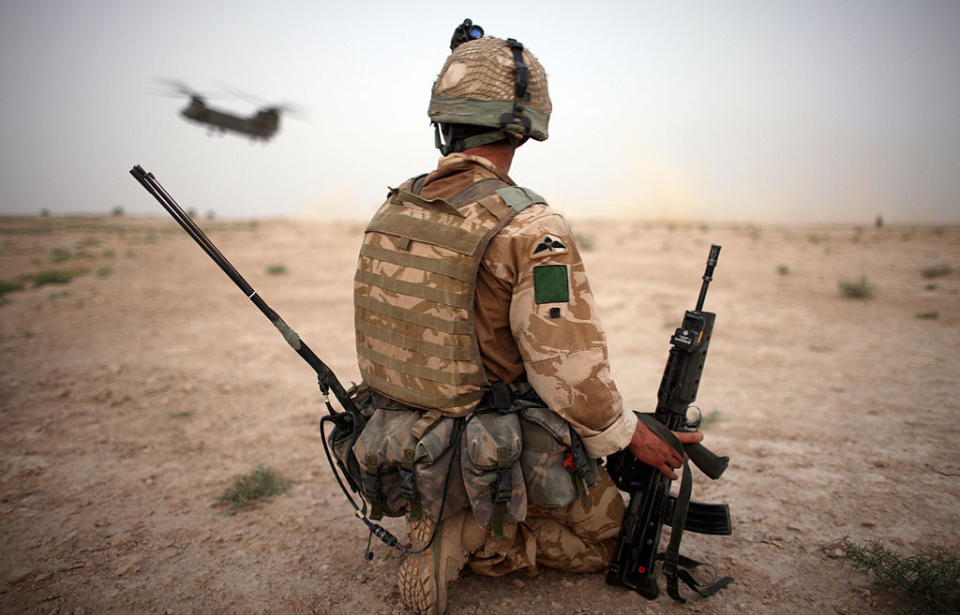Bryan Budd was a professional soldier

Hailing from Belfast, Northern Ireland, Bryan Budd’s aspiration to become a soldier ignited early in his life. In 1996, he answered the call by enlisting with the Parachute Regiment, driven by a desire to be among the elite at the forefront of battle.
Determined to surpass expectations, Budd pursued a less conventional path, successfully navigating the rigorous assessments to join the esteemed ranks of the 16 Air Assault Brigade’s Pathfinder Platoon. Tasked with conducting reconnaissance missions deep within enemy territory, the Pathfinders blazed trails into combat zones. This role granted Budd the opportunity to participate in operations across various theaters, from the former Yugoslavia and Sierra Leone to Macedonia, Iraq and, ultimately, Afghanistan.
Increased Taliban activity in Helmand province
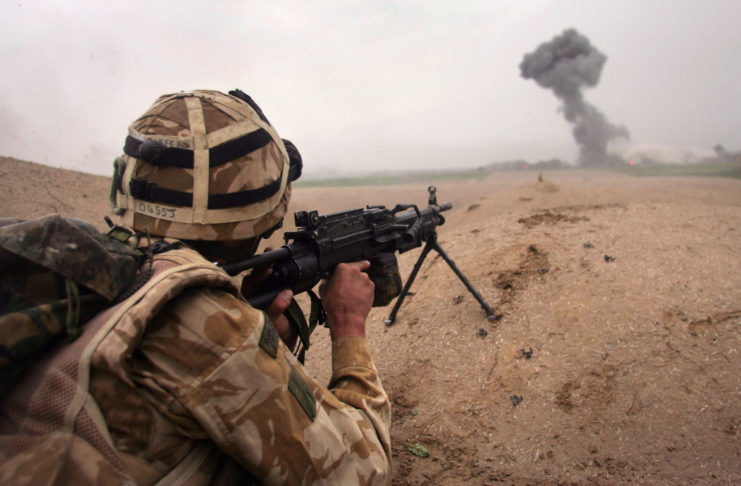
In 2006, Bryan Budd joined with the 3rd Battalion, Parachute Regiment (3 PARA), as part of a British task force deployed to Helmand province, Afghanistan. The area became synonymous with heated combat during this time, with Sangin becoming a critical battleground.
The Taliban, adapting to the presence of Western military forces, intensified their aggression and resilience. Previously, they’d engaged primarily from a distance, but now they confronted troops directly to assert control over rural Afghanistan. For Budd’s final mission, this meant engaging in close combat amid fields of corn.
His Victoria Cross citation recounts an incident from July 27, 2006. When his section faced heavy fire from militants positioned on a rooftop, numerous British PARAs were wounded and in need of evacuation. Realizing suppressive fire hindered any rescue attempts, Budd boldly rose from cover, braving the hail of bullets, and charged toward the building.
Budd’s daring assault compelled the Taliban to retreat across an exposed field, where they encountered the lethal accuracy of British marksmanship. His actions facilitated the safe evacuation of his comrades and marked the first of two extraordinary acts of bravery.
Bryan Budd was just five days from home
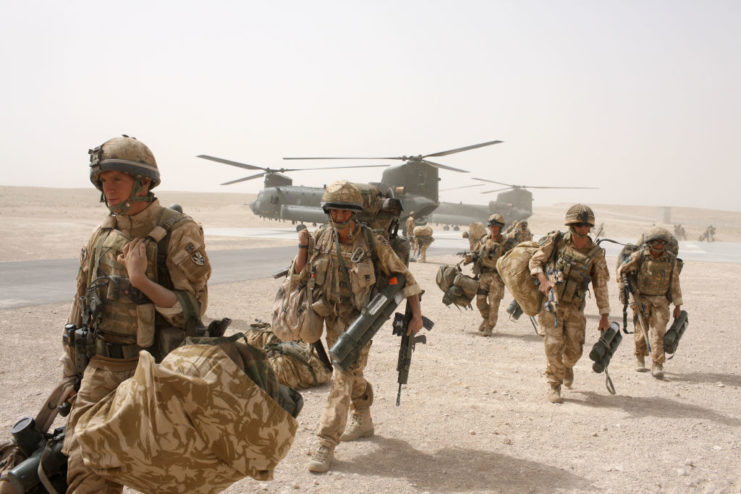
While deployment dates can frequently change at the last minute, reports indicate that Bryan Budd was set to return home on August 25, 2006. On August 20, he was in Sangin, where his unit was defending a remote outpost. Due to its strategic position, it faced daily attacks from the Taliban and needed strong defense, which included regular patrols around the perimeter.
During one of these patrols, Budd was guiding his men through dense vegetation made up of tall corn. Despite the reduced visibility, he spotted a large group of Taliban fighters about 30 meters ahead. To maintain an advantage, Budd executed a flanking maneuver aimed at eliminating the enemy.
Taliban insurgents versus the British Parachute Regiment
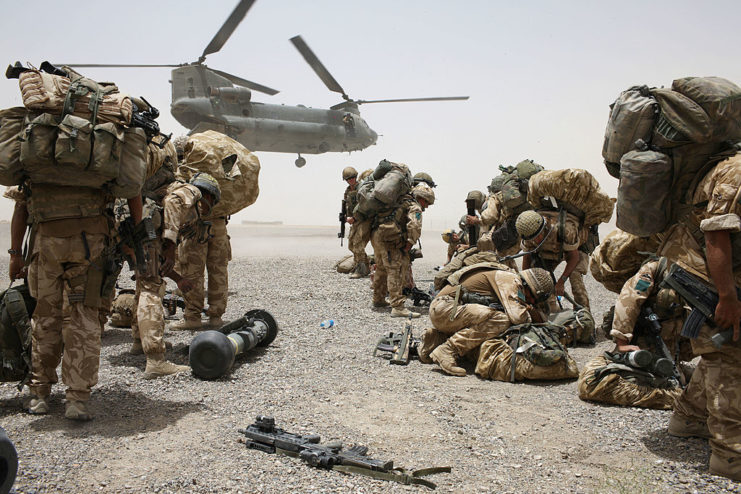
With three of his men being injured, Bryan Budd once more understood the necessity of taking control and proceeded with the attack – alone. He charged through the cornfield and engaged the enemy. Despite sustaining wounds during the exchange, he persisted in the assault, providing cover for his comrades to regroup.
His actions effectively silenced the Taliban fighters and allowed the wounded to be evacuated safely.
Bryan Budd met a tragic end
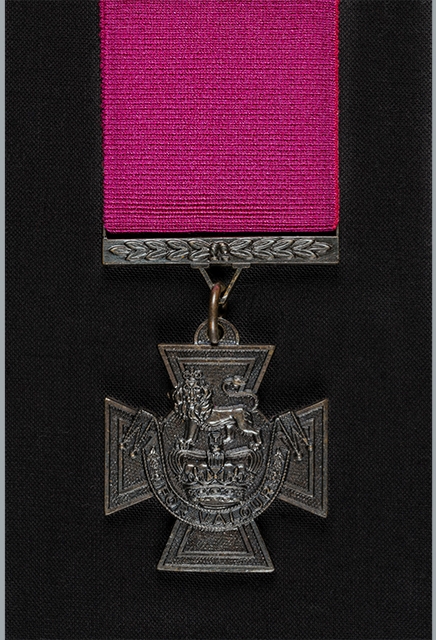
For his actions on August 20, 2006 and a few days prior, Bryan Budd was awarded the Victoria Cross. He was one of less than 20 to receive the honor since the end of the Second World War. A subsequent examination might have proven that the fatal shot came from a 5.56 mm NATO weapon, which indicated friendly fire. However, that only occurred because he saw fit to close in and destroy the enemy.
On not one, but two occasions, Budd deemed it advisable to launch a counterattack and gift violence to the enemy, rather than receive it. An unexpected counterattack disrupts enemy momentum, but often at a great cost to those who pursue it. Budd will rest in the hall of history that recognizes him as a warrior who understood that battle is fought one moment at a time, with little disregard for when you might be going home.
More from us: James Ashworth: The Victoria Cross Recipient Who Gave His Life to Take Out An Enemy Sniper
If it’s indeed the case that Bryan Budd would have returned home with his family in just five days, then history owes him the recognition for conducting such a feat and sacrificing his life for his comrades.
